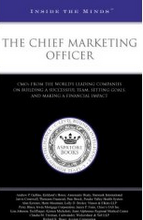Many brands choose to ignore this. But hope is not a strategy.
Since consumers rely heavily on the Web as an authoritative source of information, managing a brand's online reputation has become a top priority for companies. Here are 5 tips from The Reputation Garage's "new technology" archives. They could help you avoid a major disaster and reduce the risk of a flogging in the blogosphere.
Tip 1: Monitor the New Conversational Terrain
You have to be listening. As Woody Allen said, "half of the battle is just showing up." Create a custom feed based on keyword searches using tools like Technorati, Feedster, IceRocket and news.googlecom.
Tip 2: Measure
Agencies like Nielsen BuzzMetrics and TNS Cymfony (trackback to a podcast on how to measure the blogosphere) have more advanced tools for monitoring social networks, blogs and communities. They also can measure the volume of buzz, track the sources and gauge the emotion of the content, be it positive, negative or just sarcastic.
Tip 3: Engage
If you don't join the conversation, you have no control. We'll say it again: hope is not a strategy. Tools like BuzzLogic can give you a picture of a blogger, as well as the influencers that surround any given blog. Also sites like BlogInluence.net and SocialMeter.com can provide a snapshot of any blogger's street cred.
Tip 4: Buy Keywords?
Yes. If you do end up with a firestorm surrounding your company or brand, why not buy keywords and get your story told? Jim Nail from Cymfony says "for a company to protect its brand, they should be buying keywords." Consider Wal-Mart as the classic example. "Wal-Mart Sucks" yields negative results for the first 10 listings. So why not own those keywords as paid links to sites that put Wal-Mart in perspective, covering, among other things, the company's substantial economic benefits to society?
Tip 5: Use PR to Strengthen Your Digital Footprint
Another obvious tactic would be to issue a series of press statements to address whatever the concerns are, and optimize them for the Web. Consider using a press release distribution company such as PRWeb, which sends releases to journalists' email boxes and makes them Web ready. This will help increase the rankings in news engines such as Google News, as well as in the general search results. When a press release ranks high in a search engine, it's just one more spot a negative listing won't appear!
Tags:







No comments:
Post a Comment